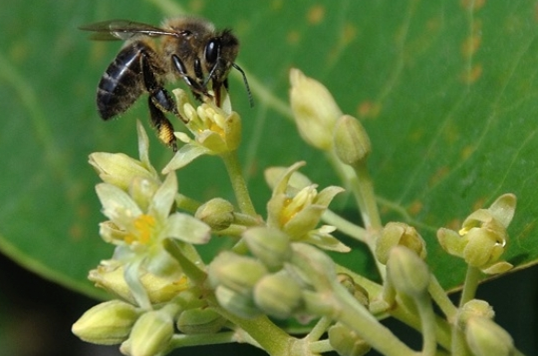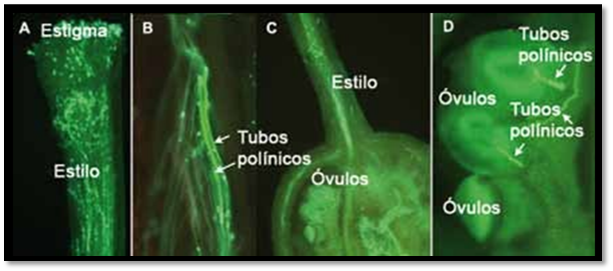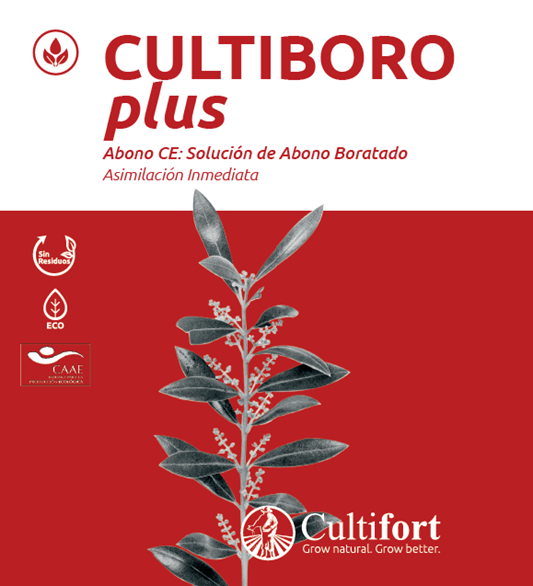Boron is an essential micronutrient for plants, since it plays important roles in their different physiological processes. In this article, we focus on the importance of this element in the processes of pollination and fruit set, and we talk about the advantages of applying CULTIBORO plus during these stages.

Avocado pollination
Practically all of the boron in the plant is found in the cell wall, where it plays a fundamental role in the stability of the same, by forming bonds with pectins and polysaccharides. For this reason, boron, along with calcium, is essential in the metabolic processes of the cell wall. In addition, boron is involved in the preservation of cellular membrane functions, by participating in the transport of sugars through the phloem, in the form of borate-like complexes.
Boron is fundamental in the main physiological processes of the plant such as cell division and growth. But, in addition, this micronutrient plays a key role in pollination and fruit set. In these stages, boron increases the viability of pollen grains. The figure shows the pollination of a tomato flower. We see how the pollen grains develop their tubes until they reach the ovule.

Different levels of detail are observed:
A: detail of style and stigma, the growth of pollen tubes is observed.
B: detail of the style, the ovules are observed.
C: detail of the style and the ovary, the ovules are observed.
D: detail of the ovules, with the pollen tubes reaching their destination.
Without adequate levels of boron in the plant these processes could not occur and we would not obtain fruits.
ABSORTION AND DEFICIT OF BORON
Boron is absorbed in the form of a hydrogen borate ion (H2BO3), both in the leaves and in the roots. Boron deficiencies usually occur in acid, sandy soils with low organic matter content. Boron deficiency is accompanied by aluminum toxicity (Al3+), so an adequate boron level in these soils contributes to reducing Al3+ toxicity. One of the first symptoms of boron deficiency is the inhibition in growth and root development. These roots become more susceptible to the attack of pathogens, due to the weakening of the cell wall. Cell division also stops in stems and young leaves. With the advance of this deficiency, the plant can present short internodes, dry buds, deformations, low pollen viability and abortion and flower fall.
The deficit of boron can negatively affect a great variety of crops, causing the cracking of the apples and rough skin, triple yolks in the citrus fruits, with small fruits, gum formation and mummified; apical necrosis in strawberry, flowering of the flower in the vineyard, gradual death in apical growth points, branches and dry apical meristems in the olive tree, breakage of the marrow in broccoli and cauliflower, brown rot of beet, fall of chapters in sunflower, etc.
To prevent such physiopathies and improve crop yields, from Cultifort we recommend the application of CULTIBORO plus, an ecological liquid formulation of boron complexed with ethanolamine and reducing sugars that help the plant to assimilate it immediately.
The application of CULTIBORO plus will be necessary in fruit trees, citrus, vine, olive, horticultural and extensive crops: at the beginning of the vegetative activity and the flowering, to improve the fertility of the flower, as well as at the beginning of the fructification


